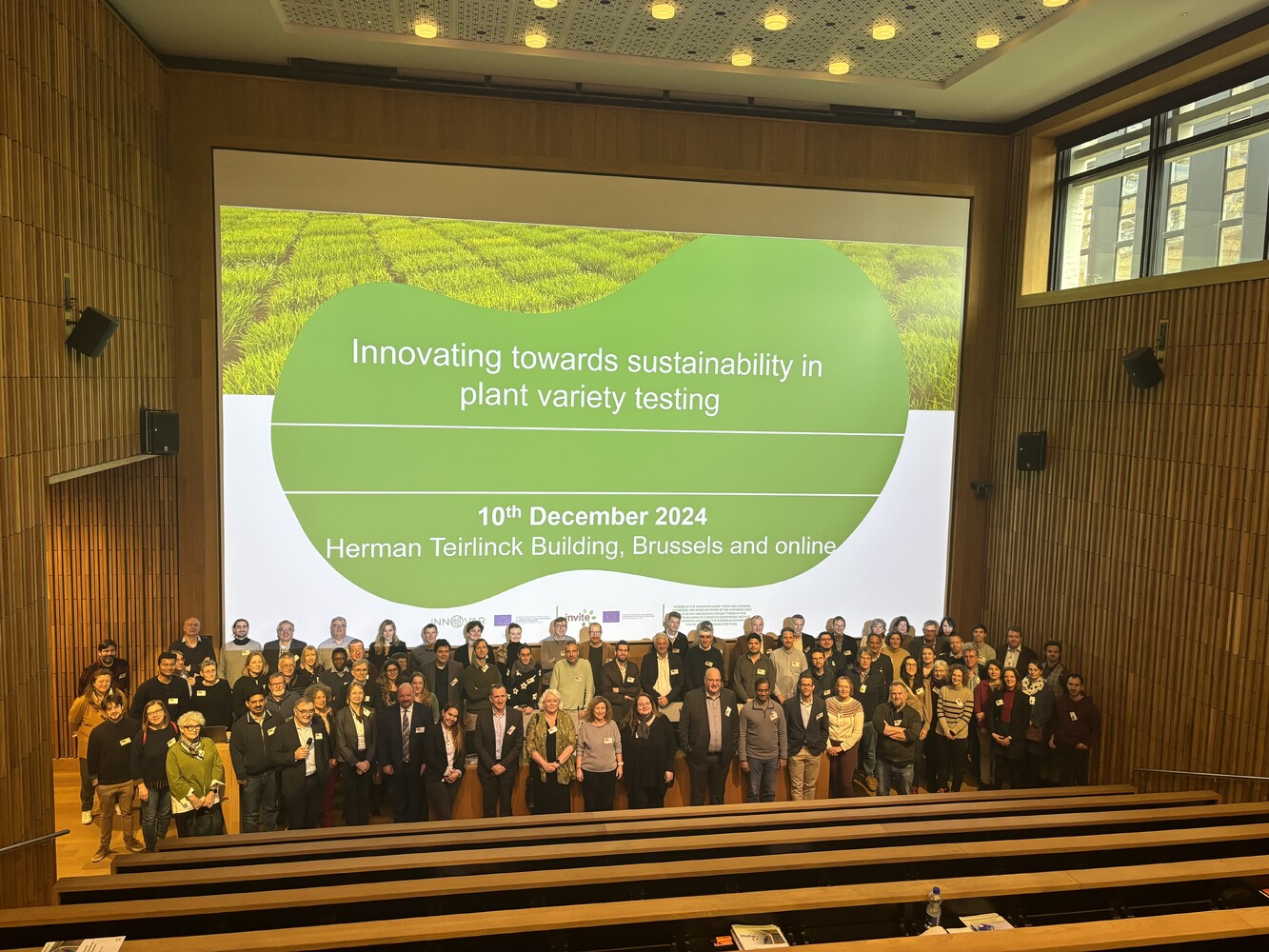France
January 31, 2025

The final conference of INVITE project brought together experts, policymakers, and stakeholders from across Europe on the 10th of December in Brussels, to reflect on the project’s accomplishments and discuss the future of plant breeding and sustainability in agriculture.
GEVES presented the work carried out jointly with other Offices on the use of molecular markers in DUS evaluations. This study was based on the reproducibility of molecular markers linked to resistance/susceptibility to Tomato mosaic virus (ToMV), Tomato spotted wilt virus (TSWV) and Fusarium oxysporum f. sp. lycopersici Fol : 1(EU)/2(US) in tomato (Solanum lycopersicum), markers included in the UPOV and CPVO protocols for DUS testing. This work has also allowed generic recommendations to be drawn up for the validation of a new trait-specific molecular marker for DUS testing.
More than 40 actions were carried out within INVITE project to develop and test phenotyping tools for variety testing, on almost all crops of the project, to measure organ characteristics, disease symptoms, or traits linked to plant development and sustainability. The work was done in the field or in laboratory, with different kinds of vectors and sensors, for a huge number of traits, for DUS, VCU and post-registration testing. New phenotyping tools can bring added value for variety testing, either by facilitating the work of variety examiners, by providing a more precise or objective measurement of a trait, or by allowing the evaluation of varietal characteristics in link with sustainability. Some of the phenotyping tools tested are already in routine for some variety examiners, such as Literal sticks on wheat. For other tools, traits and species, the development and integration of phenotyping tools will be continued through other projects, to reach a use in routine by Examination Offices and Post-Registration Offices.
The statistical models developed to analyse the precision and trend of VCU trials showed that studied VCU systems (wheat and maize over several countries across Europe) are well designed to measure genetic progress and to contribute to its orientation. The models can be directly used by Examination Offices to monitor the efficiency of their VCU system. The envirotyping methods developed will be useful for the design of Multi Environment Trials networks, to improve the representativity of the stress scenarios to which the varieties will be exposed. Envirotyping can also be usable to understand the behavior of varieties in different stress scenarios. The new designs of VCU networks using envirotyping data will have a direct impact on the type of registered varieties.
All the presentations from the conference are available on the INVITE project’s website. Project posters summarizing the research conducted throughout the project can be viewed here.
Video interviews with project partners sharing the results of their work can be viewed on the INVITE YouTube channel.